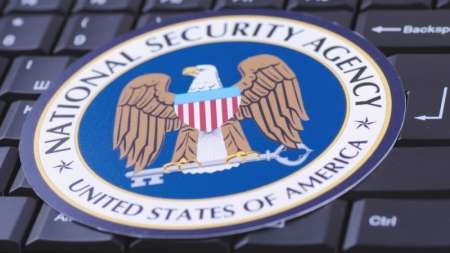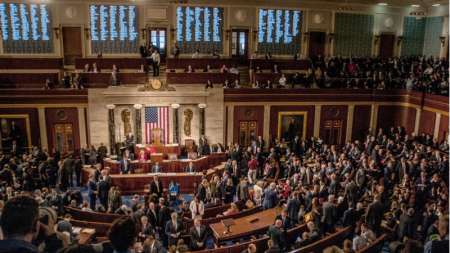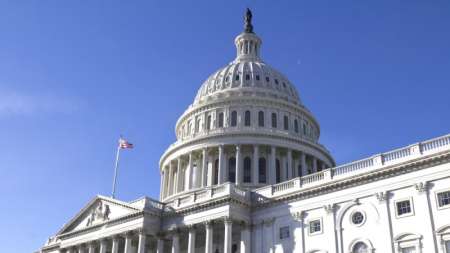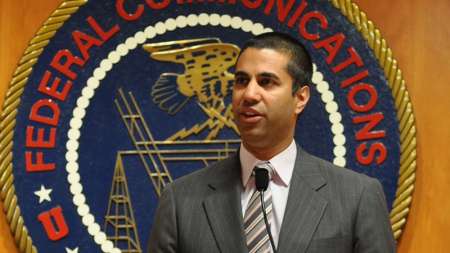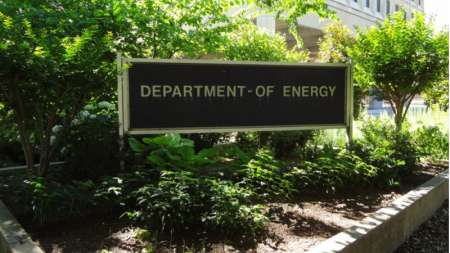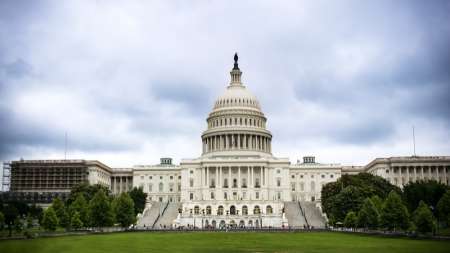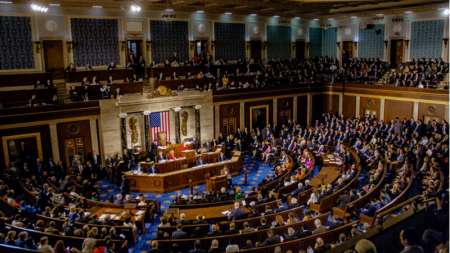A bipartisan group of House members introduced legislation on Jan. 16 that would use broadband service data mapping to identify areas of the country where high rates of poor maternal health overlap with a lack of broadband service access. […]
Reps. Lisa Blunt Rochester, D-Del., and Bryan Steil, R-Wis., on Jan. 15 officially launched the Congressional Future of Work Caucus, which they said will focus on “challenges and opportunities prevalent in the U.S. economy,” including those posed by automation and artificial intelligence (AI) technologies. […]
Rep. Jim Langevin, D-R.I., co-chair of the Congressional Cybersecurity Caucus, applauded the Federal government’s handling earlier this week of public disclosure by the intelligence community of serious vulnerabilities it found in Microsoft’s Windows 10 and Service 2016 products, for which the company released patches. […]
House Oversight Committee members from both sides of the aisle expressed support at a Jan. 15 hearing for imposing some level of Federal regulation on the use of facial recognition technologies. […]
A bill introduced in the Senate this week aims to steer tens of billions of new funding toward civilian Federal government research and development efforts involving “industries of the future” including artificial intelligence (AI) and quantum information science (QIS). […]
The House Committee on Financial Services passed H.R. 4458, The Cybersecurity and Financial System Resilience Act of 2019, via voice vote on Jan. 13. […]
A group of bipartisan legislators led by Rep. Jerry McNerney, D-Calif., sent a letter on Jan. 10 to Federal Communications Commissioner Ajit Pai to thank him for his December 2019 vote to “modernize the 5.9 GHz band.” […]
Reps. Tim Walberg, R-Mich., and Bobby Rush, D-Ill., introduced the Preventing Real Online Threats Endangering Children Today (PROTECT) Kids Act on Jan. 9. […]
In a nearly three hour hearing, the Committee on House Administration heard expert testimony regarding U.S. election security, with a specific focus on voting system security. […]
House lawmakers on Jan. 8 passed two telecommunication bills promoting United States leadership in 5G infrastructure and systems. […]
Sen. Tom Cotton, R-Ark., introduced a bill on Jan. 9 that would ban the United States from sharing intelligence with countries that use Huawei equipment and services for 5G network capabilities. […]
The House late on Jan. 8 approved H.R. 2881, a bill requiring President Trump to develop a mobile telecommunications systems and infrastructure strategy, by a 413-3 vote. […]
The National Association of Secretaries of State (NASS) wrote to Congress on Jan. 6 to thank them for including $425 million in the fiscal year 2020 budget for election security purposes. […]
President Trump signed the Telephone Robocall Abuse Criminal Enforcement and Deterrence (TRACED) Act into law on Dec. 31, 2019. […]
Sen. Angus King, I-Maine, and Rep. Mike Gallagher, R-Wis., alluded to recommendations, ideologies, and methods of the forthcoming Cyberspace Solarium Commission report at a Council on Foreign Relations event on Jan. 7 – but resisted making the big reveal with harder news about the report’s findings. […]
The Department of Energy has taken the steps necessary to implement the 2015 Cybersecurity Information Sharing Act, the department’s inspector general (IG) said. […]
The California Consumer Privacy Act (CCPA) that took effect earlier this week will not only erect a higher data privacy bar for citizens of the state, but also may put an important policy stake in the ground for Federal lawmakers who are weighing nationwide data privacy legislation. […]
Industry leaders shared their predictions for 2020 and beyond with MeriTalk, indicating the path to progress will often track uphill, and around plenty of curves. […]
Throughout 2019, members of Congress introduced numerous IT-related bills to their chamber, but they are scattered across various levels of the legislation process. With the 116th Congress approximately halfway through its two-year session, here’s a status update on where some of the top IT legislation stands: […]
Sens. Gary Peters, D-Mich., and Rick Scott, R-Fla., have introduced a bill in the Senate that would establish a K-12 cybersecurity education initiative. […]
The Senate on Dec. 19 voted to confirm the nominations of Dana Deasy as Defense Department CIO, and Lisa Hershman as DoD’s chief management officer, following up on a confirmation hearing by the Senate Armed Services Committee on Oct. 29. […]
The recent approval by the House of Representatives of two bills to improve the Federal government’s efforts to assemble and maintain accurate nationwide broadband service maps is adding weight to an ongoing push by the Federal Communications Commission to do the same in order to direct funding and other regulatory help to bringing more broadband options to underserved areas. […]
The House Science, Space, and Technology Subcommittee on Energy on Dec. 19 passed the Grid Modernization Research and Development Act of 2019. […]
The Senate today approved the first part of the $1.4 trillion spending package that will fund the Federal government through Fiscal Year 2020 and deliver a 3.1 percent pay raise to Federal civilian employees. […]
The House Energy and Commerce Committee (E&C) released an initial draft of a bipartisan Federal privacy bill on Dec. 18. […]
Representative Mark Meadows, R-N.C., announced today that he will not run for reelection in 2020, removing a top Republican voice on Federal IT in the next Congress. […]
The House Oversight and Reform Committee voted to advance the Federal Risk Authorization and Management Program (FedRAMP) Authorization Act to the full House during a work session today. […]
The House voted Dec. 16 to approve legislation that would provide $1 billion to smaller-sized private sector communications service providers to remove from their networks equipment purchased from China-based equipment makers Huawei and ZTE, and replace that gear with equipment that does not pose a threat to U.S. national security. […]
The House voted today to approve two bills comprising the bipartisan budget agreement announced earlier this week that would fund the Federal government for the remainder of Fiscal Year 2020 and deliver a 3.1 percent pay raise to Federal civilian employees. […]
Alongside a Federal employee pay raise and $25 million for the Technology Modernization Fund (TMF), the bipartisan and bicameral Fiscal Year 2020 budget proposal includes IT funding boosts across agencies with an emphasis on cybersecurity. […]



